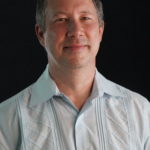Yale undergrads explore University’s ties to eugenics
Three Yale students spoke at a panel on Wednesday about Yale’s relationship with eugenics.

Dora Guo, Illustrations Editor
On Wednesday, three undergraduates presented their research on Yale’s relationship with eugenics at the The Legacies of Eugenics in New England Conference: Part 1, hosted by the Hutchins Center for African & African American Research at Harvard University.
The Yale student presenters were José Garcia ’22, Sidney Velasquez ’24 and Dora Guo ’23, an Illustrations editor for the News. They performed their research with fellow students Tallulah Keeley-Leclaire ’22 and Emily Xu ’24. Also speaking at the event was associate professor of ethnicity, race and migration and American studies professor Daniel HoSang, who mentored the students. HoSang gave initial comments, followed by remarks from each of the three students.
HoSang introduced eugenics as a concept advanced by colonial, elite, white men. “Eugenics legitimated the dominant racial inequalities at the time, and naturalized the rule of elites,” he said in his comments.
Guo said that eugenics includes “better breeding techniques” that aim to prevent racial minorities, and added that while the ideas tarnish the concepts that America was founded upon, various people at Yale were early pioneers of eugenic beliefs.
According to the group’s presentation, the American Eugenics Society was founded on Yale’s campus in 1926, located on 185 Church St. at the eastern end of the New Haven Green. Guo added that the American Eugenics Society was “especially close to the office of former Yale President James Angell, Yale psychobiologist Robert Yerkes and Yale economist Irving Fisher.”
The student leaders of the project argued that despite the term “eugenics” not existing in practice today, the issue is rooted in the foundation of Yale. Their findings grew out of analyzing primary sources from Beinecke Library, the Yale Divinity School and the Yale School of Medicine. In addition, they spoke to various archivists and engaged with students across different universities.
In her part of the project, Guo analyzed a letter by Yerkes to his friend and fellow eugenicist Charles Gould.
“Exploring the legacies of eugenics at Yale made me think of Yale’s motto ‘Lux Et Veritas’— light and truth,” Guo said. “It’s easy for us to point fingers at the past and condemn Yale’s history as exclusionary and problematic, but the more rigorous and important form of research asks how we all continue to play a role in these constructions of ‘truth.’ Today, faculty and students alike will need to deeply question the history of our university and our disciplines. We have to have conversations about the lasting effects eugenics has.”
HoSang described how the research project the students conducted first began as an idea he proposed to his large lecture classes, and he explained that he believes that students interested in psychology, environmental science, economics, medicine and anthropology should explore eugenics because it affects their fields of study as well. HoSang added that he was so inspired by the summer work that he proposed to teach a seminar on the history of eugenics research in the spring of 2022.
Other speakers discussed locations other than Yale with ties to eugenics, including Harvard University. Many explained that more college campus communities will need to learn from the history of eugenics entrenched in their universities’ founding in order to combat systemic racism, sexism and inequitablility.
Wednesday’s event is part of an ongoing series about the history of eugenics, largely hosted by Harvard, to mark the anti-centennial of the Second International Eugenics Congress in 1921.
Correction, Sept. 24: This article has been updated to reflect HoSang’s comments at the research presentation, as well as to clarify that his proposed Spring 2022 seminar is focused on the history of eugenics research.








